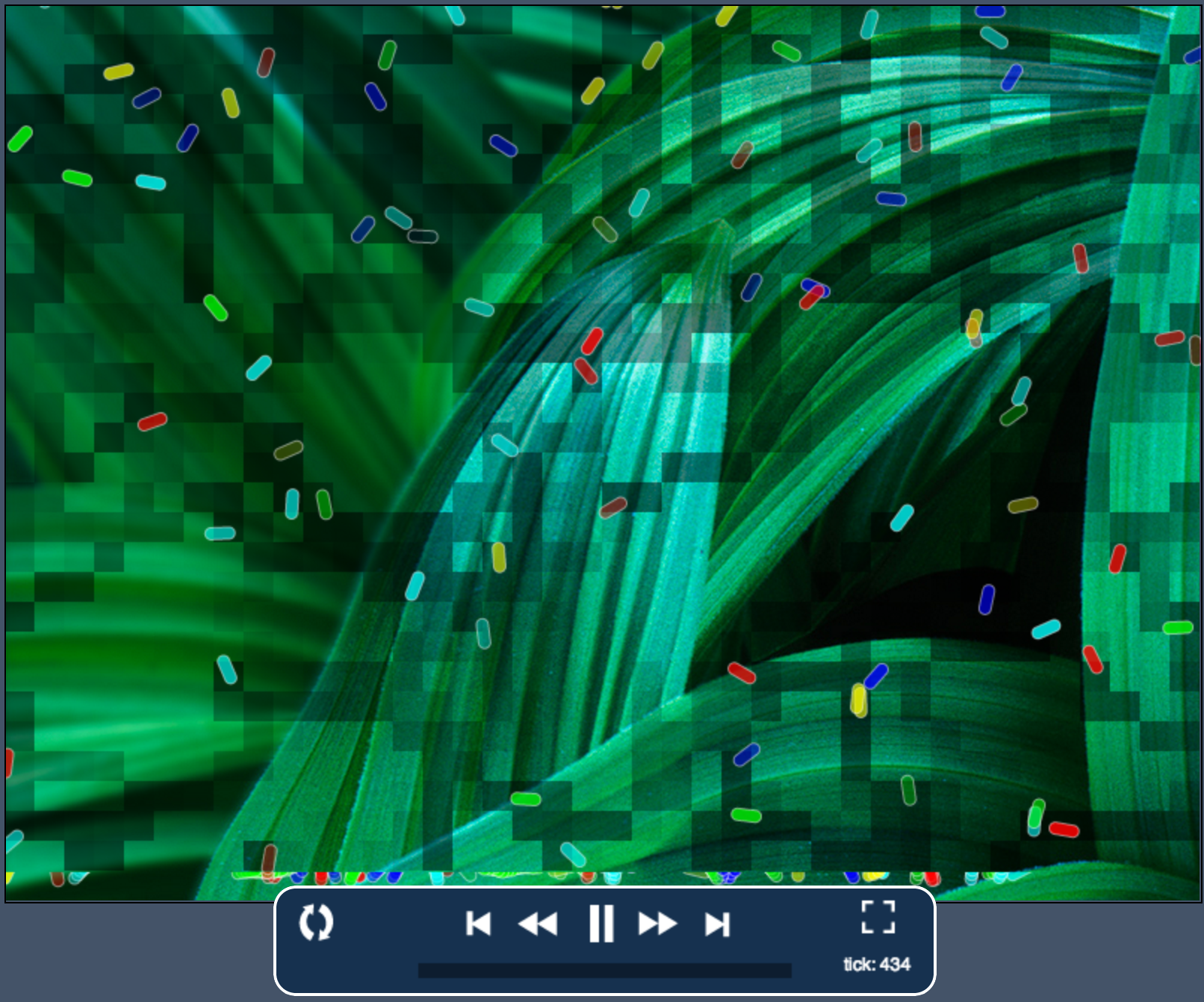Learning Evolution through Model-Based Inquiry
Overview
This project explores the use of computational, agent-based modeling activities in STEM classrooms (at all levels) as well as science museums. Its two main objectives are to develop new ways for students to learn core concepts of evolutionary biology, and to explore innovative activity structures for student collaboration.
Our focus is researching how evolution can be thought of and learned as complex systems and computational processes, by emphasizing the individual mechanics that lead to evolutionary processes like natural selection and genetic drift.
Our project combines the use of agent-based modeling with emerging interactive technologies (including multi-touch tabletop surfaces, networked simulations, and mobile devices).
Collaborations
NetTango, a project aiming to bring agent-based modeling to younger audiences with block-based programming.
Screenshots



Researchers
PI - Uri Wilensky
Co-PIs - Michael Horn and Corey Brady
Graduate Reseach Assistants - Amartya Banerjee, Bryan Guo, Aditi Wagh, Krystal Villanosa, Arthur Hjorth, Elham Behesti
Publications
Brady, C., Horn, M., Wilensky, U., Wagh, A., Hjorth, A., & Bannerjee, A. (2014). Getting your Drift - Activity designs for grappling with evolution. In Penuel, W., Jurow, S., & O'Connor, K. (Eds.) Learning and Becoming in Practice: Proceedings of the 11th International Conference of the Learning Sciences (ICLS 2014) - Volume 2, Short Papers, Symposia, and Selected Abstracts. International Society of the Learning Sciences: Boulder, CO.
Horn, M.S., Brady, C., Hjorth, A., Wagh, A., & Wilensky, U. (2014). Frog Pond: A code first learning environment on natural selection and evolution. Proceedings of IDC 2014. Winner of Best Short Paper.
Acknowledgements
This research is made possible by support from the National Science Foundation under NSF grant DRL-1109834.However, any opinions, findings, conclusions, and/or recommendations are those of the investigators and do not necessarily reflect the views of the Foundation.
